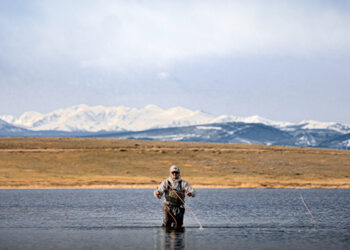This issue, David Davenport, the assistant vice president for Health and Wellbeing at the Austin Peay State University, shares advice transitioning from a campus rec director to an assistant vice president (AVP).
How did you become an AVP?
DD: Here at Austin Peay State University (APSU), our Student Affairs division underwent a reorganization following the transition of a new vice president of Student Affairs. As a result of a Student Affairs Climate Survey, following an external review, a new organizational structure was developed that included placing all units in pillars. For several years, I’ve been dedicated to seeking more responsibilities, including applying for AVP positions nationwide. When an opportunity arose within our institution, I made my interest known. As a result, I was promoted to the AVP of Health and Wellbeing with responsibility over Health and Counseling, the Office of Disability Resource Center, and University Recreation.
What’s been the biggest challenge in transitioning from a campus rec director to an AVP position?
DD: The biggest challenge for my transition has been not being involved with Campus Recreation daily. This program is something I literally built from the ground up here at APSU, and now I need to walk away from it and grow into a new position. To further complicate matters, my office remains located where it was when I was the director of the Campus Rec unit. On the plus side, the person replacing me as director was formerly my assistant director of Recreation and we already had a good relationship.
What are the top three things you’ve learned since becoming an AVP?
DD: The top three things I’ve learned since becoming an AVP are:
To give myself grace and understand there’s a learning curve in this role with a new vice president and learning new areas that report to me. My skill set is there, now it’s about training myself to grow and lead differently.
The flexibility I’ve gained from my recreation training has proven to be a valuable asset in my new role. It’s allowed me to approach the management of other units under my supervision in a dynamic and adaptable manner, which I believe can be beneficial to our overall operations.
One of the more personal lessons I’ve learned is the friendships I cultivated along the way as a director don’t always last or move with me as an AVP. This transition has taught me the importance of maintaining professional boundaries and the need to balance personal connections with the demands of my new role.
For other directors who may be looking at making a similar leap, what advice would you give them?
DD: For directors who may be looking at making a similar leap to AVP I would tell them to:
Focus on the gains as opposed to what you will no longer have.
Think about who you could influence now that you couldn’t before.
Think how to navigate the new rooms you’re now in.
Be reminded why you took this job.










